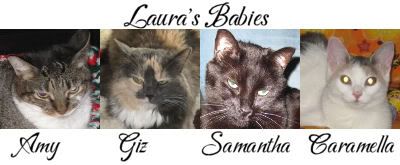http://www.cbc.ca/canada/calgary/sto...s-culture.html
Culture significant consideration in case of 60-year-old mother: doctor
Last Updated: Friday, February 6, 2009 | 3:20 PM MT
CBC News
A Calgary doctor says Ranjit Hayer's decision to have twins at age 60 should be considered through the lens of South Asian cultures.
As CBC News first reported Thursday, Hayer is the Calgary woman who gave birth to twin boys this week after travelling to her native India for in vitro fertilization.
'This is a big relief because it's normalized their perspective. It's normalized their life.'— Dr. Harjot Kaur Singh
The case, especially Hayer's age, has raised ethical questions about how far to push the frontiers of medical science, social debate over how fair it is for children to have elderly parents, and resentment that the Canadian health-care system paid for Hayer's delivery and the treatment of her premature babies.
Dr. Harjot Kaur Singh, a family physician born in India, raised in Brooks, Alta., and educated at the University of Calgary, said she empathizes with Hayer because having a family and being a mother are highly valued in India and most other eastern cultures.
She explained that as a woman, not having a child would be seen as unfulfilling, and even as a tragedy.
"It would be abnormal to not have children, and so I think for them, this is a big relief because it's normalized their perspective. It's normalized their life," Singh said. "It's really given them some joy and happiness.
"Now, I'm not saying that this should medically have been done or not, but I'm looking at it from the viewpoint of the cultural perspective."
The Hayers' nephew, Tony Hayer, said family is a big part of their Punjabi culture and the couple, who lived by themselves, would visit often with relatives and their children.
"They would see the families and always felt left out," Tony Hayer told the Calgary Sun. "Out of a lot of relatives, they were the only ones married but without children."
Extended family support helps older parents
Dr. Amninder Shergill, a physician at the Northeast Calgary Women's Clinic, said becoming a mother at 60 carries too many medical risks.
Shergill, who grew up in India and studied medicine there, said most Indian women tend to have their children while they're still young.
"We have history of having lots of kids … but not with your first-time pregnancy at this late age with in vitro, no," she said.
As for concerns that Hayer and her husband will not live long enough to see their twins grow up, Singh points out it's common in eastern cultures to rely on a network of relatives.
"The extended family as a unit raises the child. Even we see now in India, where the grandparents will be in the village and they will be taking care and raising the kids, and the parents will be in the city earning an income," she said.
"I don't think there is a generational change. I think that perspective has always been there."







 Reply With Quote
Reply With Quote






Bookmarks